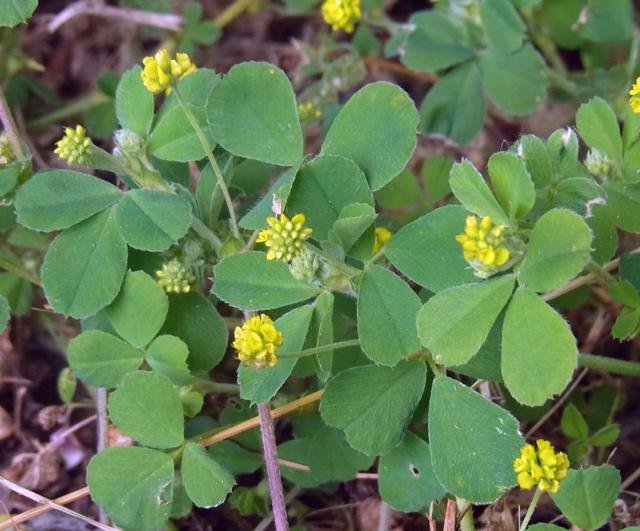April showers bring May flowers; June heat produces weed flowers
By Bonnie Orr
WSU Chelan/Douglas County Master Gardener


You intended to scrape out those little weeds when they first appeared at the end of May. Now these flowering weeds are setting seeds. Often, they thrive in areas of low soil fertility and irregular water.
Weeds are diligent and determined. An annual bluegrass plant can produce viable seed within 24 hours of pollination. Have you ever cut a salsify, those giant “dandelion puffs?” If you do not discard the plant, its severed head filled with merely flower buds, will skip the flower stage and immediately produce a large seed puff.
Currently, area residents are asking Master Gardeners questions about eradication of rogue violets, mare’s tail, black medick, oxalis (yellow shamrock), Russian thistle, purslane and puncture vine — did I mention your special nemesis?
In the spring, annual weed seeds germinate and then grow madly to produce seed before they dry out in August.
Biennial weeds started as a little cluster of leaves near the ground last summer, and this year an extended bloom stalk has grown. Think of knapweeds and mullein. Parsley is a biennial, as well.
Perennials are those plants that have evolved massive root systems often with thick rhizomes deeply underground. You can kill the vegetation, and it will grow back almost before your very eyes. Think of field bindweed/wild morning glory, whitetop and horsetail.
These weeds are in your garden now; their seed-producing capacity is awe-inspiring. Not only do the plants produce hundreds of thousands of seeds, but the seed can also remain dormant in the soil for years, and every time you distribute the soil by digging it, you expose more seeds to the light. Moreover, tricky plants, such as violets and oxalis can produce seeds underground without the benefit of flowers in addition to spreading by underground stems.
So, let’s deal with these weeds. The annuals could have been treated with a pre-emergent last spring, but it is too late now. It is really a waste of chemical product to spray them with herbicide since they have wimpy root systems and can be easily pulled or scraped from the ground. Anyway, herbicides are not very effective on plants with narrow, hairy or waxy leaves. Annuals also can be mown before they bloom. If you cut or mow weeds and let the flowers/seed heads lie on the ground, the decapitated plant can still produce seed that will haunt you for years to come.
For biennials, you can just cut off the flowering stalk because the rest of the plant will die by fall anyway. This is best, because if you pull the plant, you will disturb the soil, and any latent seeds will germinate to form a leaf roseate, which will set seed next year.
Don’t let the perennials bloom. And treat the plant with herbicide in the spring and fall. It is too hot now to apply herbicides. The Master Gardeners recommend products which are most effective to use on any perennial weed.
What do you do with those weedy, seedy plants once you have cut them or pulled them? Do not compost them. Do not leave them on the ground.
Gather all the cut materials — seeds, flowers and stalks — and put them in a large plastic bag that can be sealed. Put the bag in the trash. Or after you have filled the bag with the weedy material, add two cups of water, seal the bag and place it in a very hot and sunny spot. With the summer’s heat, the seed material will boil and be rotted in the bag. After a couple of weeks of heat treatment, this slurry can be added safely to your compost pile. There should be no recognizable plant parts in the smelly slurry.
The final word: After you have eradicated the weeds, apply at least a 3-inch layer of mulch over the bare soil to prevent new seeds from germinating and to slow down germination of next year’s crop.
If you want to be sure you know how to sort the annuals from perennials or biennials, bring a sample or a photo of the plant to the WSU Chelan County Extension office, 412 Washington St., Wenatchee, on Wednesdays from 1 to 4 p.m. Another option is to visit the Master Gardener booth at the Wenatchee Valley Farmers Market on Saturdays. The market is open 8 a.m. to 1 p.m., and the Master Gardener booth is staffed from 9 a.m. to noon.
